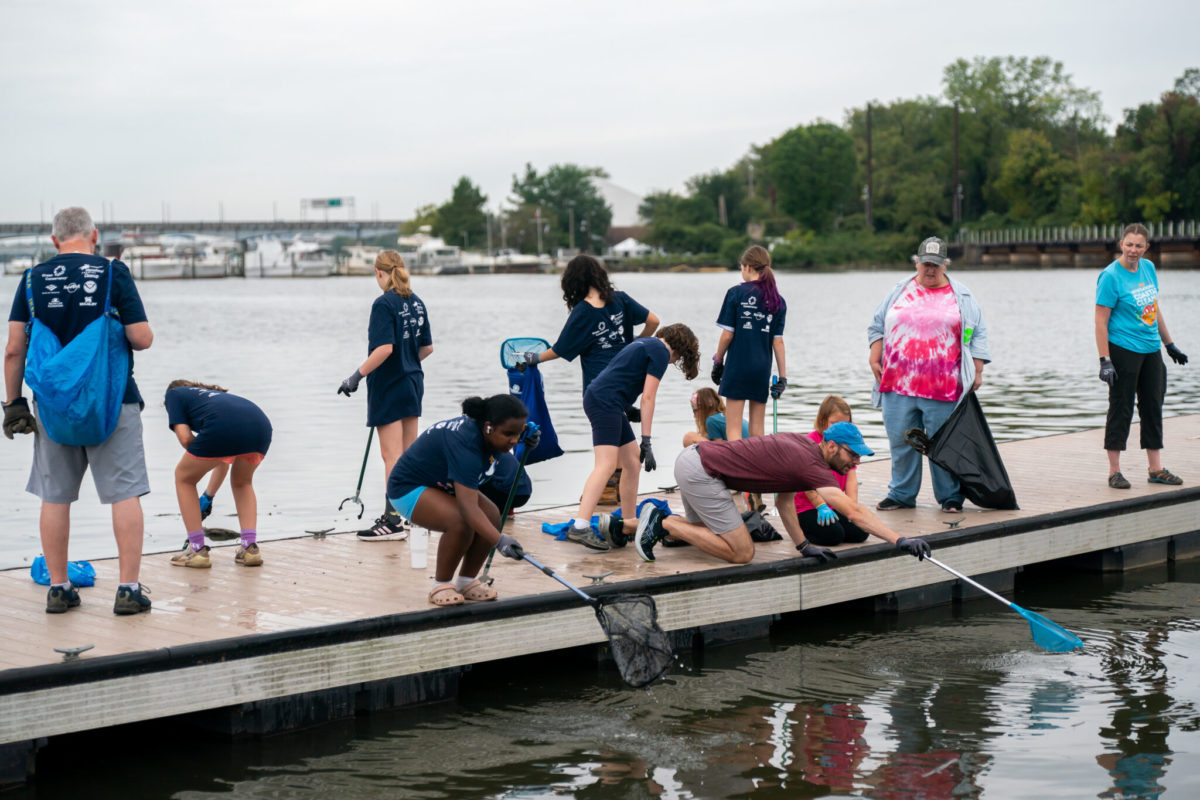NEWS: 326 Volunteers Remove Over 1,500 Pounds of Trash from Anacostia Park

WASHINGTON – Today, as part of Ocean Conservancy’s 40th Annual International Coastal Cleanup® (ICC), 326 volunteers collected 1,510 pounds of trash from Anacostia Park in Washington, D.C. The ICC is an annual, global effort to remove trash from beaches and waterways around the world. Since the start of the ICC in 1986, nearly 19 million volunteers have joined local cleanup efforts to remove over 400 million pounds of trash–equivalent to over 27,000 pounds per day for 40 years.
“I am so thankful to all of the volunteers who showed up today for our ocean – and every volunteer who has made the last 40 years of impact possible,” said Ocean Conservancy’s Senior Director of Conservation Cleanups, Allison Schutes. “Every piece of plastic collected helps save marine animals and habitats and contributes to research and advocacy.”
While the majority of trash collected consisted of the usual items like water bottles, cigarette butts, and bottle caps, volunteers also turned up unique finds like a hula-hoop, a skateboard, and a mini fridge.
Every year, more than 11 million metric tons of plastic waste are estimated to enter the ocean, impacting more than 1,300 species of marine life, including seabirds, sea turtles and marine mammals. Plastics never fully break down in the environment and instead, break into smaller and smaller pieces called microplastics. Microplastics are found everywhere scientists look, from the depths of the Mariana trench to mountain tops, and even our dinner plates, showing up in proteins, salt, and even drinking water.
In addition to the direct benefit of removing trash from the environment, the data collected by ICC volunteers using the Clean Swell app or paper data sheets contribute to Ocean Conservancy’s marine litter database. This database is the world’s largest repository of marine debris data and is used to inform scientists, conservation groups, governments, and industry leaders about ocean trash to fuel plastic pollution prevention and advocacy efforts. ICC data were recently used in a peer-reviewed study that shows plastic bag bans lead to reduced plastic bag pollution. Furthermore, ICC data has also been instrumental in spurring policy change–from being used to promote California’s SB 54, to the Florida balloon release ban to the Farewell to Foam Act.
If you would like to set up an interview with one of Ocean Conservancy’s experts, please contact Roya Fox at rfox@oceanconservancy.org or 202.280.6285.
Photos and videos from today’s event can be found HERE.
The International Coastal Cleanup media kit with photos, b-roll and data can be found HERE.
You can find a two pager with toplines from the 2024 ICC data HERE.
You can find the full 2023 ICC report HERE.
###
ABOUT OCEAN CONSERVANCY
Ocean Conservancy is working to protect the ocean from today’s greatest global challenges. Together, we create evidence-based solutions for a healthy ocean and the wildlife and communities that depend on it. For more information, visit oceanconservancy.org, or follow us on Facebook, X (formerly Twitter) or Instagram.
MEDIA CONTACT
Roya Fox
rfox@oceanconservancy.org
202.280.6285